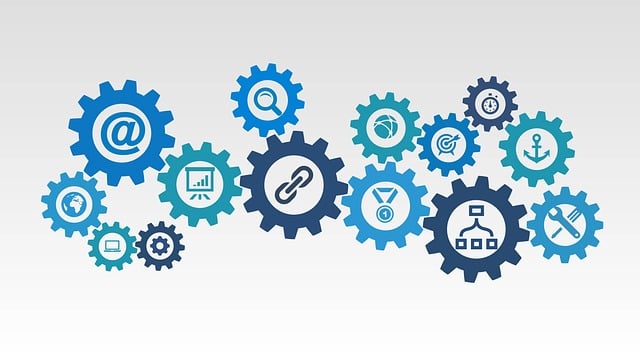In today's digital era, Artificial Intelligence (AI) is transforming auto repair shops by boosting profitability through AI coaching. Machine learning algorithms analyze data for swift and accurate vehicle diagnostics, leading to faster turnaround times and increased customer satisfaction. AI applications streamline scheduling, inventory management, and predictive maintenance, while analytics provide insights for data-driven decisions. Implementing AI requires strategic training, pilot programs, and collaboration with tech providers. This holistic approach enhances shop efficiency, reduces costs, and strengthens financial positions through effective AI-driven management practices.
In today’s competitive automotive landscape, AI is transforming traditional repair shops into efficient, profitable hubs. This article explores the multifaceted role of artificial intelligence in revolutionizing auto repair, from enhancing diagnostics and simplifying tasks to optimizing shop management. We delve into the benefits, applications, and practical strategies for implementing AI, focusing on how these tools can drive significant improvements in profitability. Discover how AI coaching can be the game-changer your shop needs.
- Understanding AI's Role in Auto Repair: Benefits and Applications
- Implementing AI: Strategies for Training and Adopting New Technology
- Enhancing Profitability with AI-Driven Shop Management Practices
Understanding AI's Role in Auto Repair: Benefits and Applications

In today’s digital era, Artificial Intelligence (AI) is transforming various industries, and auto repair shops are no exception. AI coaching offers a myriad of benefits that can significantly enhance shop profitability and efficiency. By leveraging machine learning algorithms, AI tools can analyze vast amounts of data to diagnose complex vehicle issues more accurately and swiftly. This results in faster turnaround times, increased customer satisfaction, and reduced labor costs.
AI applications in auto repair extend beyond diagnostics. These intelligent systems can streamline scheduling, inventory management, and even provide personalized recommendations for customers. For instance, AI-powered software can predict maintenance needs based on vehicle history and driving patterns, enabling proactive service and fostering long-term relationships with clients. Ultimately, integrating AI into auto repair shops empowers businesses to stay competitive, improve operational precision, and drive overall profitability.
Implementing AI: Strategies for Training and Adopting New Technology

Implementing AI in auto repair shops requires a strategic approach, especially when aiming to enhance profitability. The first step is to train staff on the new technology, ensuring they understand its potential and limitations. This involves providing clear, hands-on training sessions that demonstrate how AI tools can streamline diagnostics, parts identification, and even predict maintenance needs based on vehicle history. By fostering a culture of continuous learning, mechanics can become adept at utilizing AI as an aid to their expertise rather than seeing it as a replacement.
Adopting new technology also requires a structured plan. Shops should start with pilot programs, testing AI tools on a small scale to identify any challenges or inefficiencies. This iterative process allows for adjustments before full-scale implementation. Moreover, collaborating with tech providers to tailor AI solutions to the specific needs of auto repair shops can significantly improve profitability by optimizing work processes and reducing errors.
Enhancing Profitability with AI-Driven Shop Management Practices

AI-driven shop management practices are transforming the way auto repair shops operate, ultimately enhancing their profitability. By implementing AI coaching tools, shops can streamline operations and reduce costs. These intelligent systems automate routine tasks like scheduling appointments, managing inventory, and processing insurance claims, freeing up staff to focus on more complex repairs.
Furthermore, AI analytics provide valuable insights into shop performance, allowing owners to make data-driven decisions. Predictive maintenance algorithms identify potential issues in vehicles before they become costly breakdowns, while AI-powered diagnostics speed up the identification process, reducing labor hours. As a result, auto repair shops can improve efficiency, reduce waste, and increase customer satisfaction, ultimately boosting their bottom line.
AI is transforming the auto repair industry, offering significant benefits from improved efficiency and accuracy to enhanced customer satisfaction. By implementing AI tools, shops can streamline processes like diagnostic decision support, inventory management, and scheduling, ultimately boosting profitability. Adopting AI-driven practices not only keeps pace with technological advancements but also positions repair shops as innovative leaders in their field, ensuring long-term success in a competitive market.
